Understanding the Cost Factors in Kitchen Remodeling: A Detailed Analysis
Remodeling a kitchen is one of the most significant and impactful home improvement projects you can undertake. It can breathe new life into your home, increase its value, and enhance your daily living experience. However, it can also be a complex and costly endeavor. Understanding the various cost factors involved in a kitchen remodel is crucial to planning a successful project that fits within your budget. In this article, we’ll break down the costs associated with each phase of kitchen remodeling, from initial planning to final finishes, to help you make informed decisions and avoid surprises.
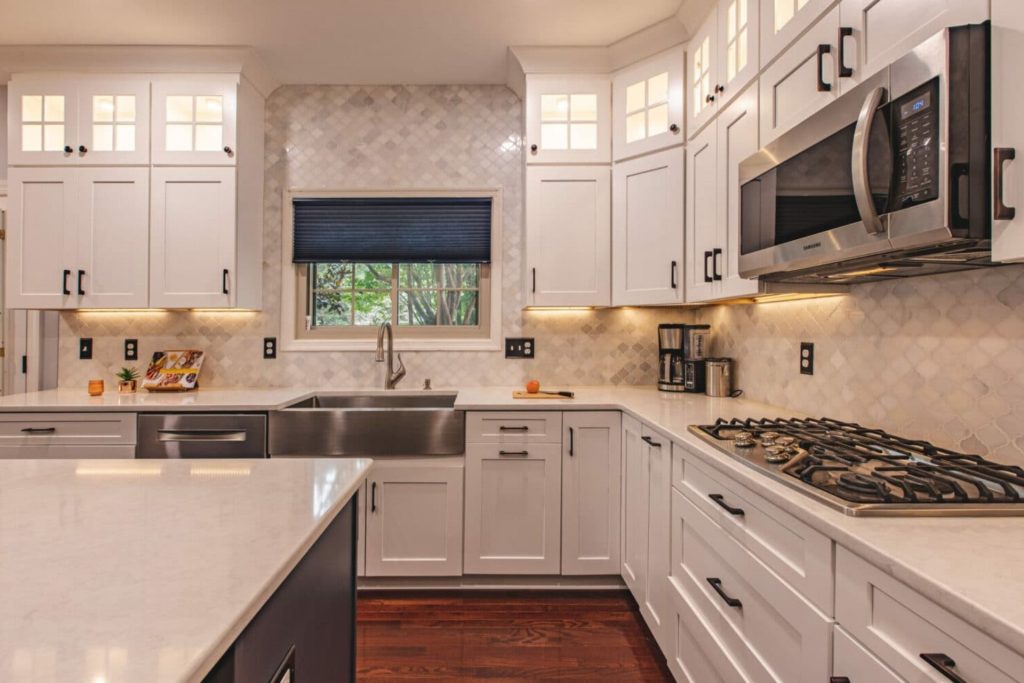
1. Initial Planning and Design
Before any construction begins, the planning and design phase sets the foundation for your kitchen remodel. This phase includes everything from creating a layout to selecting materials and finishes. Here’s a breakdown of the costs involved:
- Professional Design Services: Hiring a kitchen designer or architect can significantly impact the overall success of your remodel. These professionals can help you maximize your space, create a functional layout, and select materials. A Design-Build Remodeling Company partners with Interior Designers, Architects, and Artisan Craftsman to bring your dream to life.
- Design fees typically range from $150 to $250 per hour, or they may charge a flat fee based on the project’s complexity. Expect to spend between $2,000 and $5,000 on design services, depending on the scope of your remodel.
- Permits and Inspections: Depending on the extent of your remodel, you may need to obtain permits for structural changes, electrical work, plumbing, and more. Permit fees can vary widely based on your location and the nature of the work, but you should budget anywhere from $500 to $2,000 for permits and inspections.
- Planning and Contingency: Allocating funds for planning and contingencies is crucial. It’s wise to set aside 10-20% of your total budget for unexpected costs that may arise during the project. This can include unforeseen structural issues, changes in materials, or delays.
2. Demolition and Site Preparation
Once the planning and design are complete, the next step is to prepare the site for construction. This phase involves demolishing the existing kitchen, preparing the space for new installations, and ensuring that the site is ready for the work ahead.
- Demolition Costs: Demolition can range from a simple teardown of cabinets and countertops to more complex removals involving walls or flooring. On average, demolition costs between $2,000 and $3,000. If hazardous materials like asbestos are present, abatement will add to the cost.
- Site Preparation: After demolition, the site must be prepared for the remodel. This can include leveling floors, reinforcing structures, and ensuring that plumbing and electrical systems are up to code. Site preparation costs typically range from $3,000 to $6,000, depending on the condition of the existing space.
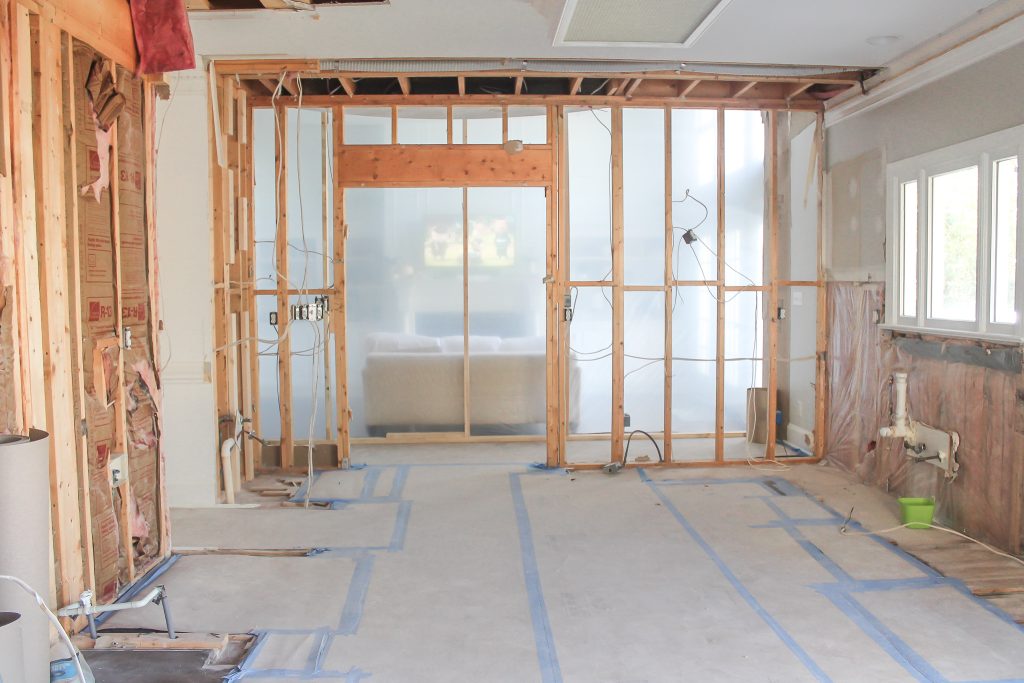
3. Structural Changes
If your remodel includes structural changes—such as altering the layout, removing or adding walls, or expanding the kitchen’s footprint—these modifications can significantly impact the overall cost.
- Wall Removal or Addition: Removing or adding walls to create an open-concept layout or adjust the kitchen’s size involves structural work. Costs can vary depending on whether the wall is load-bearing. Removing a non-load-bearing wall might cost between $1,000 and $2,500, while removing a load-bearing wall can range from $3,500 to $10,000 or more due to the need for additional supports and permits.
- Expanding the Kitchen: Expanding the kitchen’s footprint by adding square footage or extending it into an adjacent room is a major undertaking. This involves foundation work, framing, and possibly even exterior construction. Costs for expansion can range from $20,000 to $50,000 or more, depending on the size and complexity of the addition.
4. Electrical and Plumbing Work
Upgrading or relocating electrical and plumbing systems is often necessary during a kitchen remodel, especially if you’re changing the layout or installing new appliances.
- Electrical Upgrades: Modern kitchens require sufficient electrical capacity to support new appliances, lighting, and outlets. Upgrading the electrical system might include installing new wiring, adding circuit breakers, and ensuring that everything meets code requirements. Electrical work typically costs between $2,500 and $6,000, depending on the scope of the work.
- Plumbing Upgrades: If you’re relocating the sink, dishwasher, or refrigerator, or if you’re installing new plumbing fixtures, you’ll need to upgrade or reroute plumbing lines. Plumbing work can range from $2,000 to $6,000, depending on the complexity of the project.
5. Cabinetry and Storage Solutions
Cabinets are often the focal point of a kitchen remodel, and they can account for a significant portion of your budget. The cost of cabinetry depends on the materials, construction quality, and customization options you choose.
- Stock Cabinets: Stock cabinets are pre-manufactured and available in standard sizes and styles. They are the most affordable option, typically costing between $700 – $1400 per cabinet installed. While they offer less customization, they can be a cost-effective solution for budget-conscious homeowners.
- Semi-Custom Cabinets: Semi-custom cabinets offer more flexibility in terms of size, style, and finishes. They are built to order based on standard sizes but can be customized with various features like pull-out shelves or unique finishes. Semi-custom cabinets generally cost between $1500 – $2100 per cabinet installed.
- Custom Cabinets: For a fully customized kitchen, custom cabinets are built to your exact specifications. This option allows for the greatest flexibility in design, materials, and finishes but comes at a premium price. Custom cabinets can range from $2000 – $3000 per cabinet installed.
- Cabinet Hardware: Don’t forget to budget for cabinet hardware like handles, knobs, and pulls. High-quality hardware can add $400 to $1,500 or more to your cabinetry costs, depending on the materials and design.
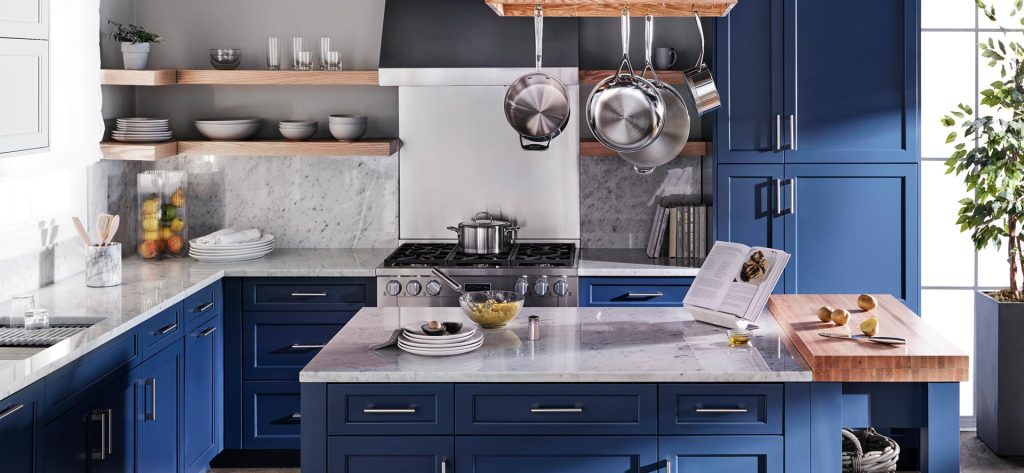
6. Countertops
Countertops play a crucial role in both the functionality and aesthetics of your kitchen. The material you choose will significantly influence the overall cost.
- Laminate Countertops: Laminate is the most budget-friendly countertop material, costing between $25 and $50 per square foot installed. It offers a wide range of colors and patterns, but it is less durable than other materials.
- Solid Surface Countertops: Solid surface materials, such as Corian, provide a seamless appearance and are more durable than laminate. They typically cost between $75 and $125 per square foot installed.
- Granite and Quartz Countertops: Granite and quartz are popular choices for their durability, aesthetic appeal, and resistance to heat and scratches. Granite typically costs between $110 and $350 per square foot installed, while quartz ranges from $140 to $350 per square foot installed.
- Marble and High-End Stone Countertops: Marble and other high-end stones like soapstone or onyx are luxurious options that can add a timeless elegance to your kitchen. These materials are on the higher end of the price spectrum, costing between $200 and $500 or more per square foot installed.
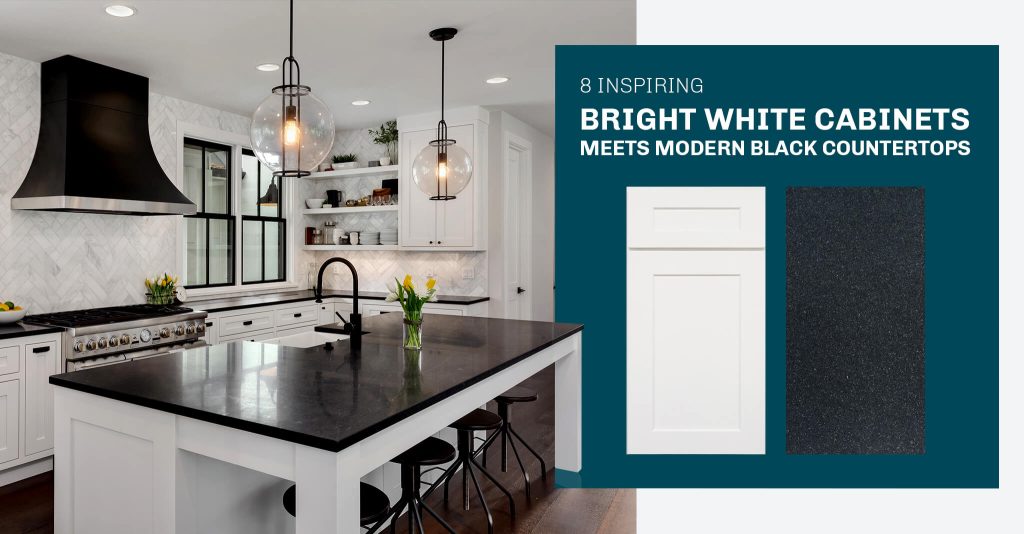
7. Flooring
The choice of flooring in your kitchen remodel will impact both the look and functionality of the space. Costs can vary widely based on the material and installation complexity.
- Vinyl and Laminate Flooring: Vinyl and laminate are budget-friendly flooring options, costing between $15 and $20 per square foot installed. They are durable, easy to maintain, and available in a variety of styles, including those that mimic wood or stone.
- Tile Flooring: Ceramic or porcelain tile is a popular choice for kitchen floors due to its durability and resistance to moisture. Tile flooring typically costs between $20 and $35 per square foot installed , depending on the material and design.
- Hardwood Flooring: Hardwood offers a warm, classic look that can increase the value of your home. However, it is more susceptible to moisture damage than other flooring options. Hardwood flooring costs between $30 and $40 per square foot installed.
- Engineered Wood Flooring: Engineered wood provides the look of hardwood with added durability and resistance to moisture. It typically costs between $25 and $35 per square foot installed.
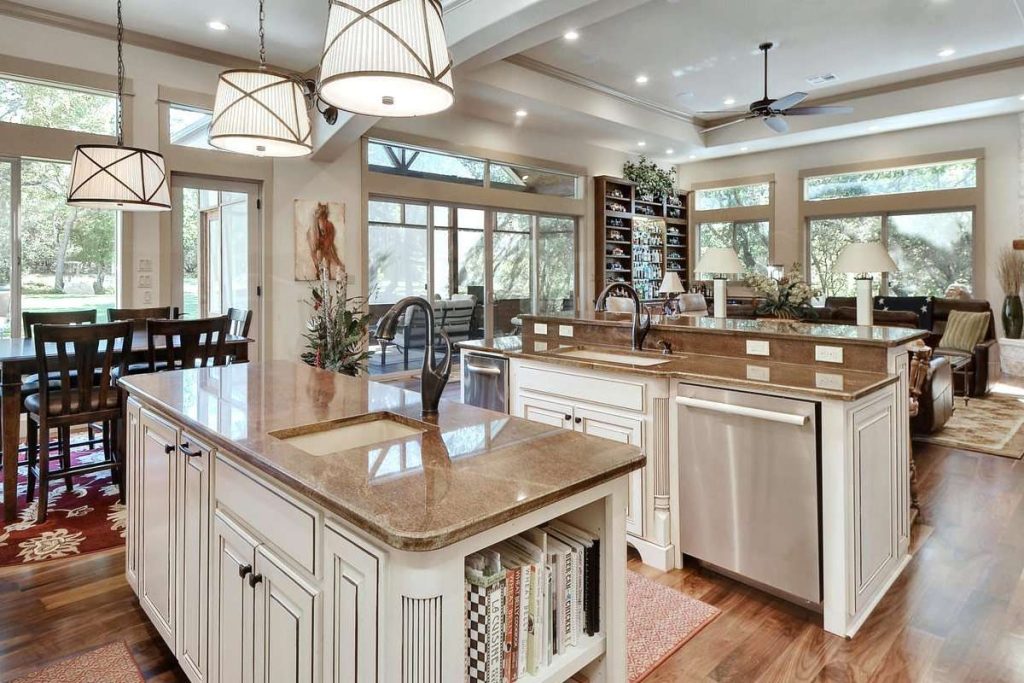
8. Appliances
New appliances are often a major component of a kitchen remodel. The cost of appliances can vary significantly based on brand, size, and features.
- Budget-Friendly Appliances: Basic models of refrigerators, dishwashers, ovens, and microwaves are available for $200 to $2,000 per appliance. These models offer essential features without the high-end price tag.
- Mid-Range Appliances: Mid-range appliances offer a balance of quality, performance, and features, typically costing between $2,000 and $5,000 per appliance.
- High-End Appliances: For luxury kitchens, high-end appliances from brands like Sub-Zero, Wolf, and Miele offer advanced features, superior build quality, and custom design options. These appliances can cost $5,000 to $15,000 or more per unit.
9. Lighting
Lighting is a critical aspect of kitchen design, affecting both functionality and ambiance. A well-designed lighting plan includes a combination of task, ambient, and accent lighting.
- Recessed Lighting: Recessed lights provide general illumination and are typically installed in the ceiling. Costs for recessed lighting range from $350 to $500 per fixture, including installation.
- Pendant Lighting: Pendant lights are often used over kitchen islands or dining areas to provide focused lighting and a decorative element. Prices for pendant lights vary widely, from $200 to $1,000 or more per fixture.
- Under-Cabinet Lighting: Under-cabinet lights illuminate countertops and workspaces, enhancing both functionality and aesthetics. Under-cabinet lighting typically costs between $1,500 and $2,500, including installation.
- Chandeliers and Decorative Fixtures: Chandeliers and other decorative lighting fixtures can add a touch of elegance and personality to your kitchen. Prices range from $500 to $3,000 or more, depending on the design and materials.
10. Backsplash and Wall Finishes
The backsplash and wall finishes contribute to the overall style and protection of your kitchen. They can also vary widely in cost based on material and design.
- Tile Backsplash: A tile backsplash is a popular choice for its durability, easy maintenance, and wide range of design options. Costs typically range from $80 to $150 per square foot installed, depending on the type of tile.
- Glass or Metal Backsplash: Glass and metal backsplashes offer a modern, sleek look but can be more expensive than traditional tile. Prices range from $120 to $240 per square foot installed.
- Paint and Wall Treatments: Painting the walls is a relatively low-cost way to refresh your kitchen, with professional painting services costing between $4 and $12 per square foot. Specialty wall treatments like textured finishes or wallpaper can add to the cost.
11. Final Touches and Accessories
The final touches in your kitchen remodel include items like faucets, sinks, and other accessories that complete the look and functionality of the space.
- Sinks and Faucets: The cost of a kitchen sink ranges from $300 to $2,000 installed or more, depending on the material and style. Faucets can cost between $750 and $1500 installed, with high-end models reaching $2,000 or more installed .
- Finishing Touches: Accessories like cabinet organizers, drawer pulls, and custom storage solutions can add between $1,000 and $4,000 to your overall budget.
Conclusion
| Basic Kitchen Remodel | Mid-Range Kitchen Remodel | High-End Kitchen Remodel |
| $44,850 | $73,650 | $120,900 |
A kitchen remodel is a multifaceted project with numerous cost factors to consider. By understanding the costs associated with each phase—from initial planning and design to final finishes—you can create a realistic budget that aligns with your vision and financial goals. While it’s easy to get caught up in the excitement of new appliances and beautiful countertops, it’s essential to approach the project with a clear plan and a focus on value. By carefully considering each cost factor and making informed decisions, you can achieve a successful kitchen remodel that enhances your home’s value and meets your lifestyle needs.
